
Cuba and Venezuela: oil and politics
By Michael Voss BBC News, Havana
Fidel Castro still dominates CubaDriving into Cienfuegos there is a billboard of Fidel Castro alongside his anti- American ally, Venezuela's Hugo Chavez.
But Cuba's 81-year-old revolutionary leader is still recuperating from a series of operations and was unable to join the Venezuelan President in person at the Petrocaribe summit which was held in this southern coastal city on Friday.
Instead it was acting president Raul Castro who arrived at the summit with Mr Chavez, along with almost a dozen prime ministers and presidents from around the Caribbean and central America.
Petrocaribe offers 17 of the region's poorer nations access to Venezuelan oil on preferential terms.
They can defer payment on 40% of their oil bill for up to 25 years, with interest of only 1%.
Petrocaribe may be a regional energy alliance. But with Venezuela and Cuba at its heart, politics is never far behind.
Barter deal
In his opening address Mr Chavez attacked the United States and other rich consumer nations for squandering their unfair share of world resources.
High oil prices have hit Caribbean countries
"We have begun to create a new geopolitics of oil that is not at the service of the interests of imperialism and big capitalists," Mr Chavez said in his speech.
He was addressing a politically diverse range of nations, some traditional allies of Washington, others more closely linked to Britain and the Commonwealth.
What they all have in common are fragile economies struggling to cope with oil prices pushing towards a $100 a barrel.
Now they are being offered a barter deal as well, with the chance to pay for some of the oil in products such as bananas and sugar.
The other Castro
Cuba has long received all its Venezuelan oil for free, in exchange for thousands of doctors who help treat the country's poor.
Raul Castro (l) runs the country in the absence of his brother, Fidel
Venezuela has the largest oil reserves outside the Middle East and critics accuse President Chavez of using his oil wealth to buy political influence across the region
Cuba may be the host but the summit was very much a Hugo Chavez affair.
Raul Castro is seen here as a pragmatic leader determined to turn this country's state-run economy around.
But he lacks his elder brother's charisma.
After the summit the two leaders visited a Venezuelan-financed housing project. Mr Chavez was in his element, kissing children and playing the populist politician.
This is not a role that Raul Castro looks at ease with.
But it was a transformed Cuban leader who took to the platform for the final event of the day, the inauguration of a major new refinery in Cienfuegos, built with Venezuelan money.
New benefactor
The refinery will provide much needed energy security to this communist island which has lived under a US trade embargo for decades.
Cuba was dependent on Soviet oil, now it depends on Venezuela
His speech was one marked by passion, pride and authority. It ended on a defiant note.
"[It] wasn't easy to keep the socialist revolution alive with such a furious enemy just 90 miles away. But we are still here after almost 50 years of resistance and victories," he said.
For much of the revolution, though, Cuba had to rely on the support of the Soviet Union.
It only just survived the collapse of communism there. Cuba suffered regular blackouts, food shortages and factory closures.
Now Cuba has found a new benefactor, but once again finds itself heavily dependent on a single source.
By Michael Voss BBC News, Havana
Fidel Castro still dominates CubaDriving into Cienfuegos there is a billboard of Fidel Castro alongside his anti- American ally, Venezuela's Hugo Chavez.
But Cuba's 81-year-old revolutionary leader is still recuperating from a series of operations and was unable to join the Venezuelan President in person at the Petrocaribe summit which was held in this southern coastal city on Friday.
Instead it was acting president Raul Castro who arrived at the summit with Mr Chavez, along with almost a dozen prime ministers and presidents from around the Caribbean and central America.
Petrocaribe offers 17 of the region's poorer nations access to Venezuelan oil on preferential terms.
They can defer payment on 40% of their oil bill for up to 25 years, with interest of only 1%.
Petrocaribe may be a regional energy alliance. But with Venezuela and Cuba at its heart, politics is never far behind.
Barter deal
In his opening address Mr Chavez attacked the United States and other rich consumer nations for squandering their unfair share of world resources.
High oil prices have hit Caribbean countries
"We have begun to create a new geopolitics of oil that is not at the service of the interests of imperialism and big capitalists," Mr Chavez said in his speech.
He was addressing a politically diverse range of nations, some traditional allies of Washington, others more closely linked to Britain and the Commonwealth.
What they all have in common are fragile economies struggling to cope with oil prices pushing towards a $100 a barrel.
Now they are being offered a barter deal as well, with the chance to pay for some of the oil in products such as bananas and sugar.
The other Castro
Cuba has long received all its Venezuelan oil for free, in exchange for thousands of doctors who help treat the country's poor.
Raul Castro (l) runs the country in the absence of his brother, Fidel
Venezuela has the largest oil reserves outside the Middle East and critics accuse President Chavez of using his oil wealth to buy political influence across the region
Cuba may be the host but the summit was very much a Hugo Chavez affair.
Raul Castro is seen here as a pragmatic leader determined to turn this country's state-run economy around.
But he lacks his elder brother's charisma.
After the summit the two leaders visited a Venezuelan-financed housing project. Mr Chavez was in his element, kissing children and playing the populist politician.
This is not a role that Raul Castro looks at ease with.
But it was a transformed Cuban leader who took to the platform for the final event of the day, the inauguration of a major new refinery in Cienfuegos, built with Venezuelan money.
New benefactor
The refinery will provide much needed energy security to this communist island which has lived under a US trade embargo for decades.
Cuba was dependent on Soviet oil, now it depends on Venezuela
His speech was one marked by passion, pride and authority. It ended on a defiant note.
"[It] wasn't easy to keep the socialist revolution alive with such a furious enemy just 90 miles away. But we are still here after almost 50 years of resistance and victories," he said.
For much of the revolution, though, Cuba had to rely on the support of the Soviet Union.
It only just survived the collapse of communism there. Cuba suffered regular blackouts, food shortages and factory closures.
Now Cuba has found a new benefactor, but once again finds itself heavily dependent on a single source.


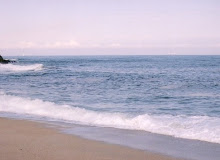





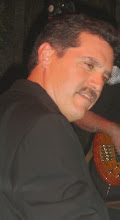





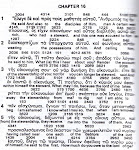

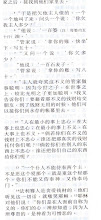









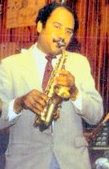







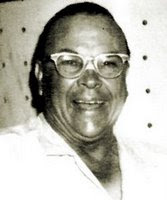







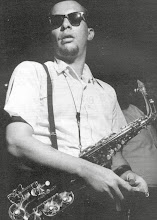

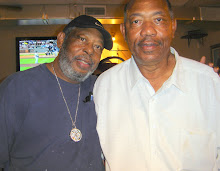


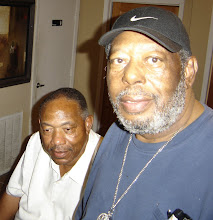













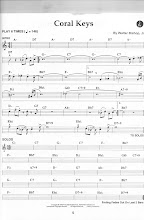

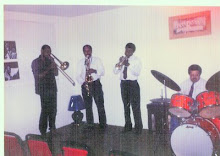






No comments:
Post a Comment